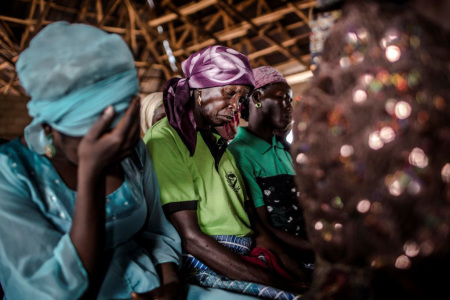142 killed, 3,000 displaced in attacks by suspected Fulani herdsmen in Nigeria

A group of armed men suspected to be radical Fulani herdsmen attacked several villages in Nigeria’s Plateau State, killing at least 142 people, abducting dozens, mostly women, and displacing more than 3,000 people, according to reports.
Men in large numbers riding motorcycles arrived in Kanam Local Government Area (LGA) of Plateau State in the early morning hours last Sunday when people were preparing their farmlands for the rainy season, the U.K.-based group Christian Solidarity Worldwide said in a statement.
The assailants burned down at least 100 homes, destroyed farmlands, looted barns and stole livestock, and murdered villagers, it said, adding that at least 70 people, mostly women, were abducted.
The communities attacked were Dadda, Dadin Kowa, Dungur, Gyambawu, Gwammadaji, Kukawa, Kyaram, Shuwaka, Wanka and Yelwa.
CSW explained that rumors of an imminent terror attack on the state’s capital city of Jos led authorities to deploy security personnel in the city, leaving rural areas more vulnerable.
There were also reports of militia men having set up camps in forests in Wase and Kanam LGAs, but “no proactive measures were initiated by security agencies to avert these ugly terror attacks,” Yusuf Gagdi, a member of the House of Representatives, told The Cable, adding that at least 3,414 people had been displaced.
“Kanam (LGA) is a mixed community where Christians and Muslims have been living together for hundreds of years,” CSW quoted Benjamin Kwashi, Anglican Archbishop of Jos, as saying.
“The two ruling houses, one Christian, one Muslim, have always interchanged. So this is not an issue between either of the communities because they are so mixed that separating them is difficult. This is definitely an unwarranted attack on a very peaceful community. My heart goes out to the families that are bereaved right now, to the wounded,” he added.
There has been an increase in attacks by suspected Fulani radicals against farming communities in Nigeria’s Middle Belt states in recent years that have reportedly led to thousands of deaths.
Weapons are being made available to militants in Nigeria by way of war-torn Libya. And in the country’s Northeast region, the terrorist groups Boko Haram and Islamic State West Africa Province have killed thousands and displaced millions in recent years.
In a report released last year, the Anambra-based International Society for Civil Liberties and Rule of Law (Intersociety) estimated that about 10 million people had been uprooted in northern Nigeria, where extremist violence was most severe, from July 2009 to July 2021.
During that time, the report stated, about 2,000 Christian schools were attacked.
The atrocities included “massacres, killings, mutilations, torture, maiming, abductions, hostage-taking, rape, girl-child defilements, forced marriages, disappearances, extortions, forceful conversions and destruction or burning of homes and sacred worship and learning centers,” Intersociety reported.
Intersociety said the mass violence had resulted from the “propagation of radical Islamism.”
The U.S.-based persecution watchdog group International Christian Concern warns that the Nigerian government “continues to deny any religious motivation behind the attacks.”
The Nigerian government, led by President Muhammadu Buhari, who comes from a Fulani background, attributes the violence in the Middle Belt states to decades-old farmer-herder clashes. However, Christian human rights advocates have accused the government of overlooking religious elements and not doing enough to protect Nigerian citizens.
Last year, the U.S. State Department removed Nigeria from its list of “countries of particular concern” for tolerating or engaging in egregious violations of religious liberty after it was placed on the list in 2020 by the Trump administration. The removal of Nigeria from the list drew backlash from some human rights activists.
Many have raised concerns about what they perceive as the government’s inaction in holding terrorists accountable for the rising number of murders and kidnappings, which some groups warn have reached the level of genocide.
ICC identified Nigeria as one of its 2021 “Persecutors of the Year.”
“Nigeria is one of the deadliest places on Earth for Christians, as 50,000 to 70,000 have been killed since 2000,” the ICC Persecutor of the Year report states.
Open Doors USA, which monitors persecution in over 60 countries, reported that at least 4,650 Christians were killed between Oct. 1, 2020, and Sept. 30, 2021. That is an increase from 3,530 the previous year. Additionally, more than 2,500 Christians were kidnapped, up from 990 a year earlier.






















